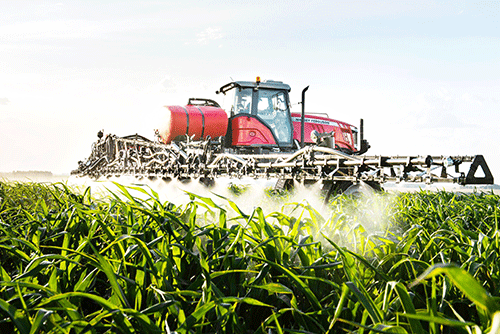Namibia’s key stakeholders and major role-players in the country’s agriculture sector recently convened in the capital to deposit their final inputs and put the last touches on the National Agricultural Investment Plan (NAIP).
The plan, which aims to facilitate and support the development of a sustainable, dynamic, diversified and a competitive agricultural sector that assures food security at household and national levels, will be implemented for a period of over six years from 2024 until 2030.
The agriculture ministry recently held a national validation workshop for NAIP and its Implementation Action Plan (IAP), where discussions focused on production, productivity, food security, human capacity, sustainable resource management, creating an enabling environment and developing responsive institutions.
The workshop was attended by representatives from all sectors within the country’s agriculture fraternity, who all validated, authenticated and made sure that the final document contains all key priority activities that were proposed during rounds of consultations, both at national and regional levels. Ndiyakupi Nghituwamata, the line ministry’s executive director, highlighted the importance of the workshop and the imperativeness of ensuring that the final NAIP document speaks to the aspirations and goals of the country’s agriculture sector.
“As key stakeholders and sector role-players, this gathering is important to ensure that the final NAIP will serve as a reference point that should ensure streamlined public-private partners activities for a meaningful and mutually owned transformation process of the agriculture sector.
Simply, NAIP as the agri-sector strategy should enable us all as stakeholders and players in the sector to pull together in the same direction, the Harambee style,” said Nghituwamata.
She added that: “After this, we will organise the ceremony where the representatives of various stakeholders will be invited to come and sign the Memorandum of Understanding between public and private actors in the agriculture sector agreed mutually to implement the NAIP. It’s only after the compact has been signed that we will be able to submit the NAIP document to the African Union Commission because that is the requirement.”
Starting in 2016, the International Food Policy Research Institute (IFPRI) has led the provision of technical support to countries for next-generation NAIPs at the request of the African Union Commission.
Many of the first-generation NAIPs established under the Comprehensive Africa Agriculture Development Programme (CAADP) framework ended in 2015, and new NAIPs continue to be designed to account for the ambitious continent-wide goals and targets of the Malabo Declaration.
The IFPRI provides evidence and analysis to identify country-specific goals and targets, investment priorities, and policy options to guide NAIP development. The NAIP analysis is organized into a series of thematic areas corresponding to the Malabo Declaration commitments.
The task force has been developed by the African Union to serve as resource a key on metrics, analytical questions, and tools for NAIP analysis and design, and provided a series of technical clinics for the experts to prepare them to use the tools and methodologies for NAIP analysis.
For each country, the experts group produces deliverables that assess recent progress and current status in each of the Malabo thematic areas; simulate alternative growth trajectories to identify investment priorities; and provide guidance on policy and programme opportunities for accelerating progress in each thematic area.
A variety of methodologies, including economy wide modeling and other quantitative and qualitative tools, are used to assess countries’ status, define goals and milestones, and identify required actions under each thematic area.
– ohembapu@nepc.com.na


